Θέσεις
UNLIMITEDΧώρος
ONLINEMALADY
Spiros Alidakis, Greece
17’20”
A man lands on an unknown island – the figure of a woman emerges.
Had they met before or is he seeing her for the first time?
Perhaps, he once lusted after her or he became obsessed.
Does he love or is he dead?
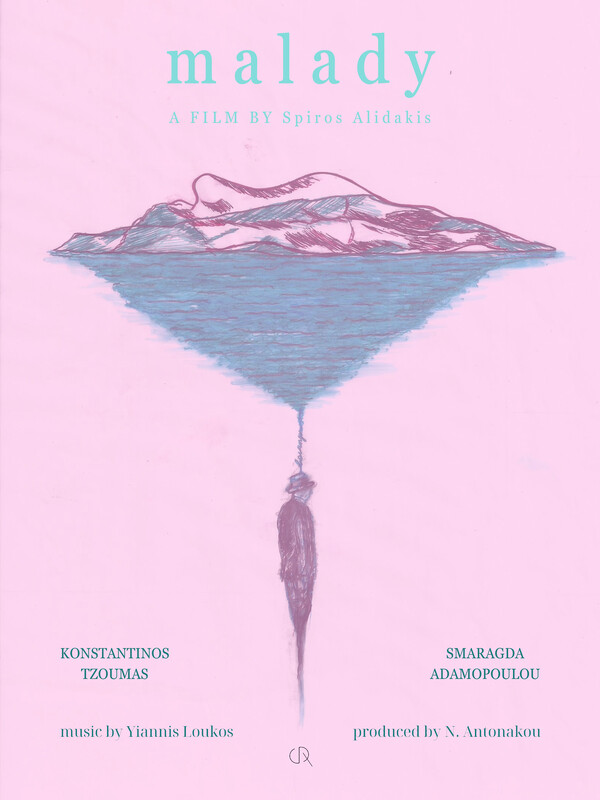
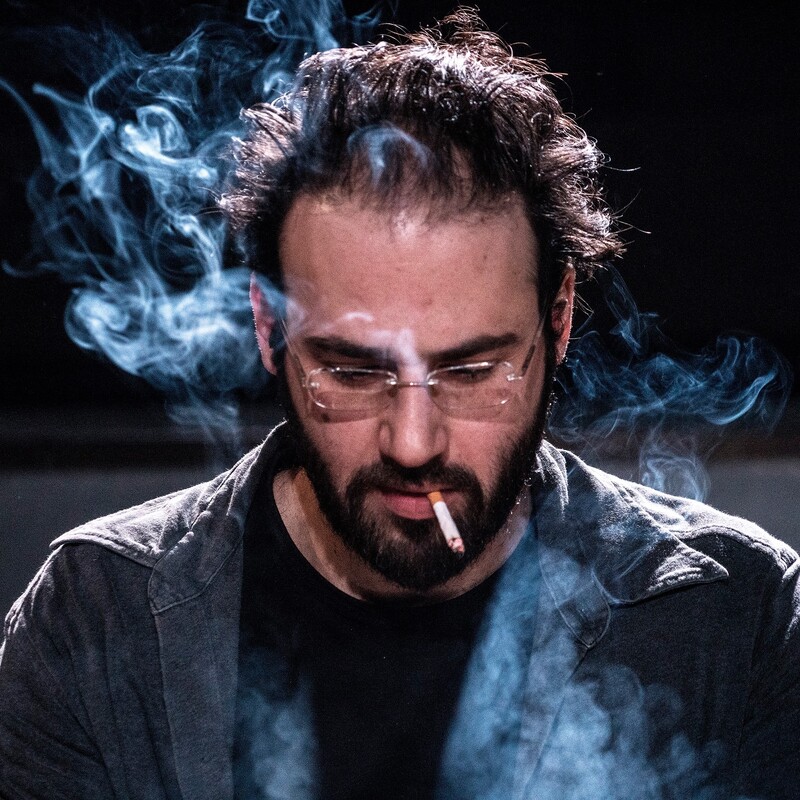
Director Biography
Spiros Alidakis (born in Athens, Greece) is a film and theatre director, screenwriter, producer and the artistic director (2013-2020) of the “Theater Odou Kykladon – Lefteris Voyatzis”. He has studied Directing for Film and Television at the Stavrakos Film School in Athens and at the NYFA in New York.
Alidakis started his film career in 2003 as an independent producer, following a partnership with Nikos Panayotopoulos and other Greek and foreign motion artists. In his theatrical career, he had worked as assistant director to Lefteris Voyatzis in the Theater of Odou Kykladon.
He has created and directed theatrical and radio plays, one documentary feature and also seven short films, many of which have been screened and have won acclaim at film festivals and art venues around the world. “Malady” is his latest short film. Currently, he is working on his new theatrical project and also developing his debut feature film.
~
Cheers To The End
Yiğit Hepsev, Turkey
15′ 05”
The world is coming to an end. Seher returns to hometown after a long time to save her father and brother. But she encounters a situation she didn’t expect. Her father insists on one last family dinner. In the midst of all this confusion and chaos, family ties will also be tested.
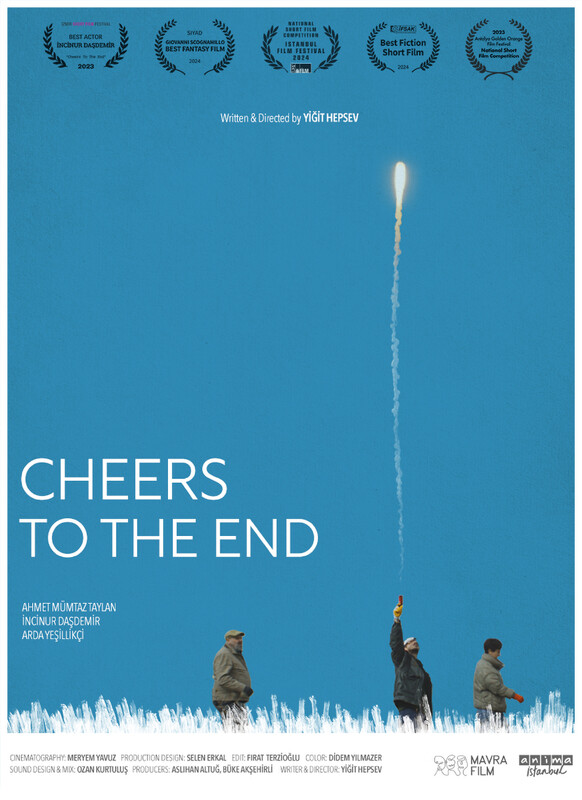
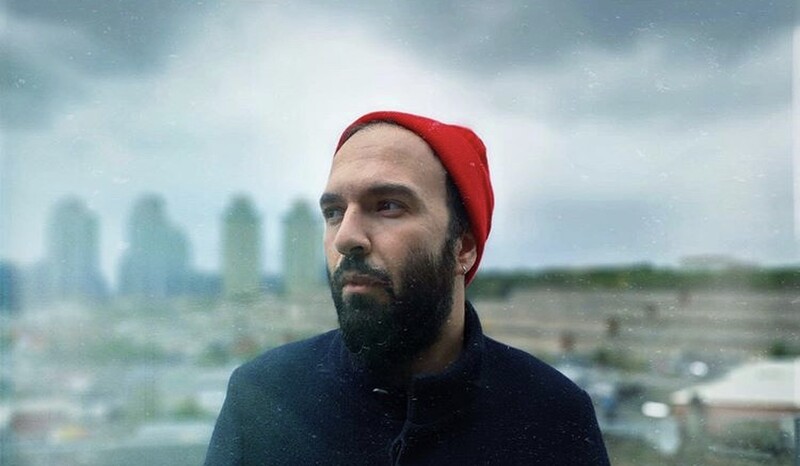
Director Biography – Yiğit Hepsev
After graduating from Communication Design undergraduate education, he followed a Master’s degree in Cinema – TV. After working in the fields of animation and visual effects, he switched to directing. He shot many commercials. In 2019, he achieved international success with his first short film, The Tail, written by himself. He is still directing at Anima Istanbul and Mavra Film.
Director Statement
The concept of the “family” has always caught my attention as a person who was born and grew up in Turkey. How long do concepts such as family ties and family holiness remain valid today? Under which conditions is this structure resistant?
The idea of the movie Cheers To The End came out in the framework of these inquiries.
In an alternate timeline, what can a family living in the village do in the midst of chaos when the world comes to an end? Despite its sci-fi elements, this movie focuses on the characters, not the disaster itself. I think the best genre to describe this contrasting situation is black comedy.
Seher, who lives in the city, comes back to the village because of the disaster to rescue her father Tahsin and her brother Serdar. Three characters meet again under the same roof. Tahir’s longing for “happy family portrait”, Serdar’s problems with being an individual and Seher’s gradual loss of power as she returns home… We will watch a family that cannot get together and carries their own disasters with them.
AÏCHA
Coralie Lavergne, France
17’50”
Elsa, 12 years old, meets her Algerian grandfather for the first time… and discovers that her mother has been hiding a significant part of her identity from her.
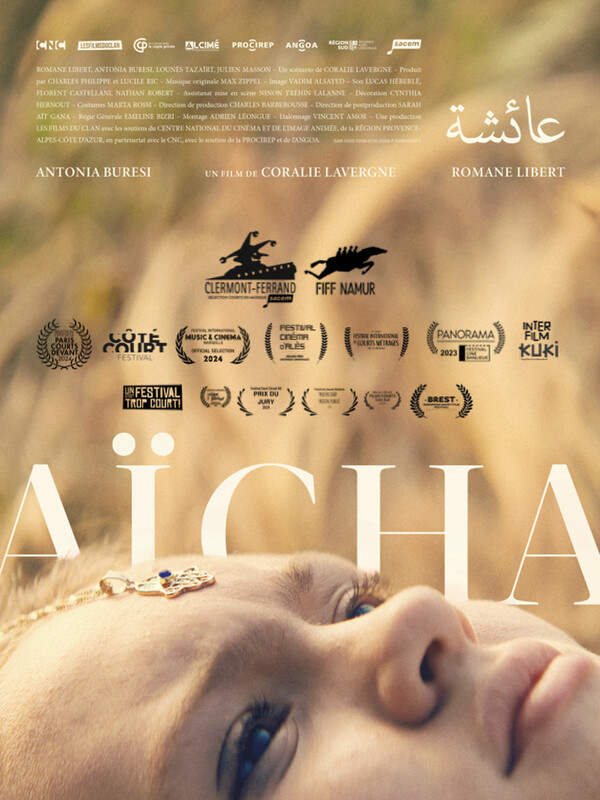
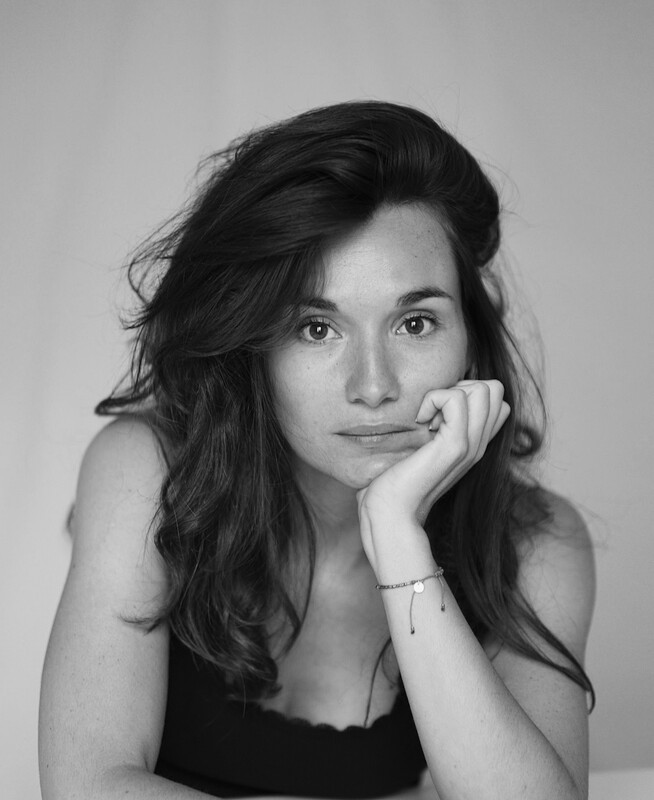
Director Biography – Coralie Lavergne
Coralie began her career as a director and actress in 2018.
Her first two short films, “CHAMPAGNE” and “BROTHER and SISTER” received more than 70 international selections. She is currently developing three features and TV series : “ABOARD”, “RUPTURES” (selected at the Valence Festival) with Superstructure Productions, and “BAGNARDES” with Atlantique Productions (Mediawan Group).
In 2022, she received the prestigious grand prize at the Valence Screenwriters Festival and she was awarded the Beaumarchais Fondation grant.
Director Statement
In AÏCHA, I wanted to give a voice to the descendants of immigrants – by confronting two generations (a mother and her daughter) about their cultural heritages. A source of shame for the mother, and pride for the younger.
This subject of multiple identity goes well beyond France : it has a strong resonance in all contemporary societies. The importance of recognizing our cultural heritage is essential for harmony in our communities, and I wanted to make a film that is both joyful and intimate in carrying this message.
Aïcha is inspired by my personal story. But it is also the story of thousands of people all around the world and I hope it will have a strong impact beyond our borders.
~
The dining table
Eleni Zografini, Greece
20’45”
As a couple prepares its upcoming theatrical play, their relationship falls apart.
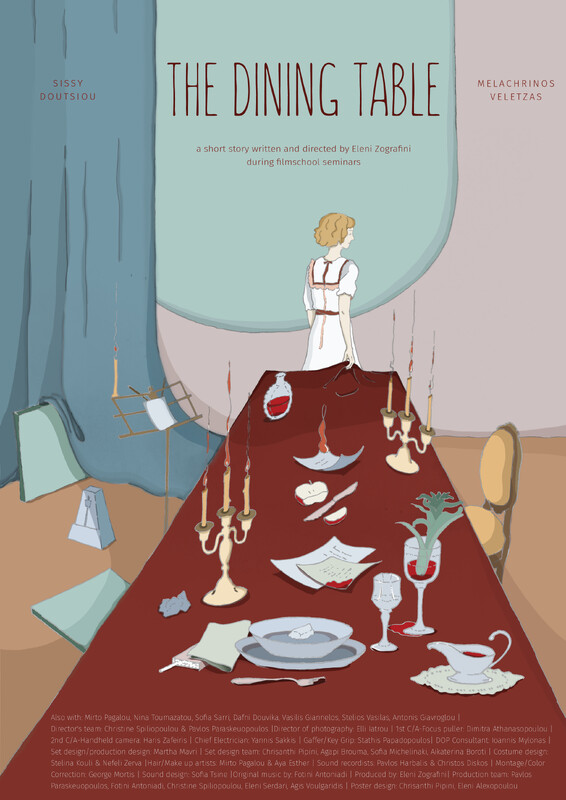
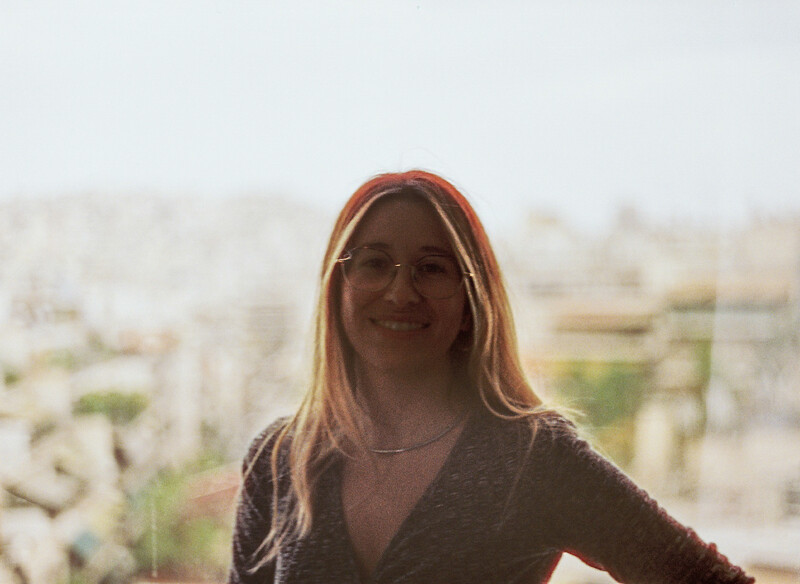
Director Biography – Eleni Zografini
I am a young architect and aspiring filmmaker.
I grew up in an island – currently I live in a city.
I have traveled, worked, and lived in Europe yet still craving to explore other parts of the world.
I like to photograph things that make us vulnerable.
I have recently discovered the work of Angela Schanelec, and I am moved.
Films, paintings, and books are some of my ways to explore human experience.
The Dining Table is my first student movie, produced during Filmschool seminars (2023-2024).
Previously, I have co-written and co-directed the short film The Taste of Taste (2020), my first attempt in cinema, during a script writing workshop.
Director Statement
This is not a story about love.
It is a story about the loss of oneself, about the cost of compromising and suppressing one´s needs,
-about the cost of moving on and forgiving.
Personally, I believe that life is field of continuous claims.
This story is not based on particular personal experiences, yet it is one of my nightmares:
It is a story that could be mine.
Making a work out of your fears, is very personal:
it is a way to push them away.
~
Carpal
Egor Isaev, Russian Federation
27’31”
Lera streams games for a living. While withdrawing her money from an ATM in the evening, she becomes a victim of robbery. A young stranger named Artyom comes to her rescue. As Lera and her savior grow closer, she realises that he knows much more about her than a random passer-by should.
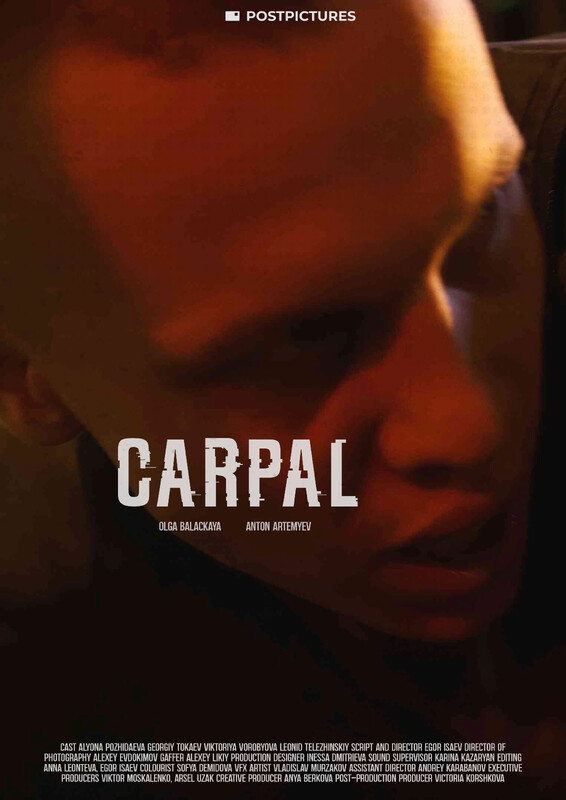
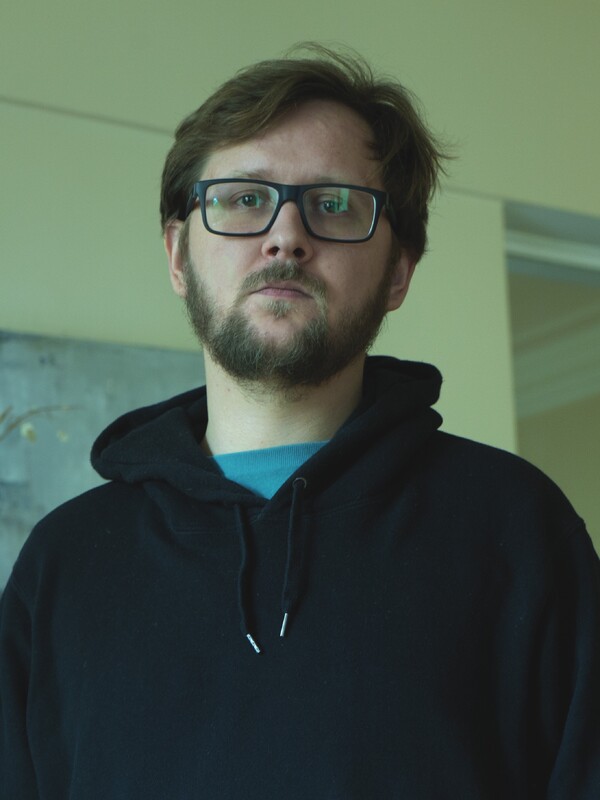
Director Biography – Egor Isaev
MA in Public History, The University of Manchester. AFA in Film Directing, Moscow Film School (supervised by A. Popogrebskiy and A. Khlebnikov). Senior Lecturer at the Media Department of the Higher School of Economics, Moscow (2014-2022).
Curator of the documentary film projects in Russian media-in-exile Mediazona. Visiting lecturer at the European Humanities University, Vilnius and the Ruhr-University, Bochum.
Director Statement
I originally planned to make Carpal (Pyast’) as a short genre film about stalking. But the deeper I delved into the subject, the more frightening and strange it became. As a result, the development phase of the project dragged on for six months, we together with the team took about 50 in-depth interviews (with victims of stalking, their relatives and the stalkers themselves) and made a series of documentary performances in the space of Teatr.doc (Moscow), conducted a social campaign drawing public attention to the problem. And only after that the work on the film continued.
The main shooting took place in Saint Petersburg in summer and autumn of 2021 after a successful crowdfunding campaign that gave us the opportunity to make the film.
But because of the Russian invasion in Ukraine and my forced departure, I was only able to continue working on it in 2023 in Berlin and Bochum, Germany.
~
CRACKLE
Fränk Grotz, Luxembourg
17’50”
Socially isolated record dealer Paul’s attempts to get close to a woman who fascinates him turn tragic when his frustrations cause him to lose control…
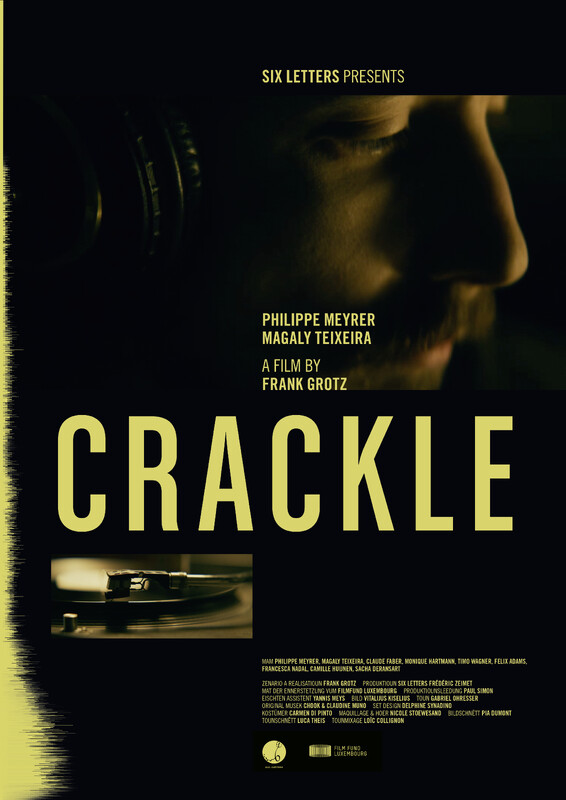
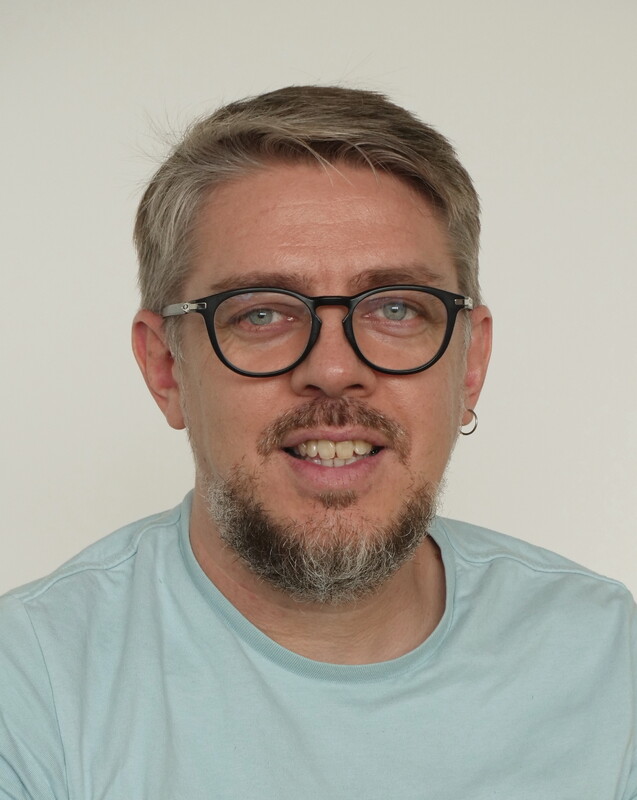
Director Biography – Fränk Grotz
After studying performance arts in France, Luxembourgish director Frank Grotz explored cinema as a critic and as a movie theater manager before mainly focusing on directing.
His most acclaimed works include “d’Schueberfouer” an experimental short, studying the visual habits in amateur film and “Ad Vitam Aeternam”, a documentary short on the life and motivations of a taxidermist.
Director Statement
Paul’s longing for affection generates stress and frustration. But denying his personal failure in channeling emotions, opening to the world and adapting to real life situations, has put him on a
dangerous path. Crackle intents to show the destructive effects of self-isolation and the way Paul finally ends up becoming an offender.
Crackle challenges the spectator and puts him in an emotionally difficult situation: being witness of a transformation and feeling empathy for someone who turns into a monster.
The ever-present music in his ears has become a hurtful sedative and his love for the songs of the 80’s relates to a past of his that we can only speculate about. The confined, calm mood of his record shop contrasts with the bright and busy ambiance of Laura’s bakery, challenging his senses. As on the party he sneaks in, Paul acts clumsily and focuses on himself instead of really listening to peoples responses. The sound design enforces the increasing sens of isolation, frustration and derailment as Paul evolves from a shy record shop owner to a dangerous stalker.